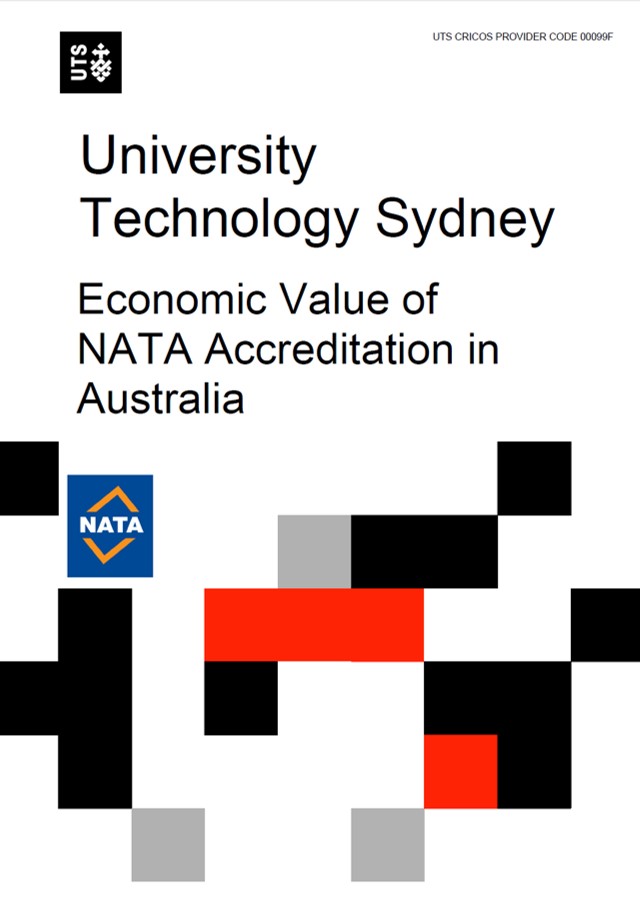Research
The Economic Value of Accreditation in Australia (April 2018)
The National Association of Testing Authorities, Australia (NATA) is Australia’s national authority for the accreditation of laboratories and producers of reference materials, and a peak body for the accreditation of inspection bodies and proficiency testing scheme providers. It commissioned the University of Technology Sydney (UTS) to conduct research to evaluate the economic value of accreditation focused on NATA’s five sectors of accreditation: Inspection, Infrastructure, Calibration, Life Sciences and Legal and Clinical.
It analyses the attributes of NATA accreditation distributed across five key themes exploring the benefits of NATA accreditation – Importance of Recognition, Standards and Quality, Efficiency and Productivity, Innovation, and Organisational Culture.
The report concludes that accreditation in Australia provides indirect but real benefits for the community and consumers of intermediate and final goods and services. This research report highlights the measurable and intangible attributes of NATA accreditation as a contributor to the Australian economy. Whilst the estimated measurable economic worth represents a value of between AUD $315m and AUD $421m, to place a value on the intangible attributes of accreditation is impossible as the services NATA provides are intrinsically woven within the fabric of the Australian business, economy, and society.
A copy of the report is available here.
Author: R Agarwal, R Green, C Bajada – Australia, University of Technology Sydney








